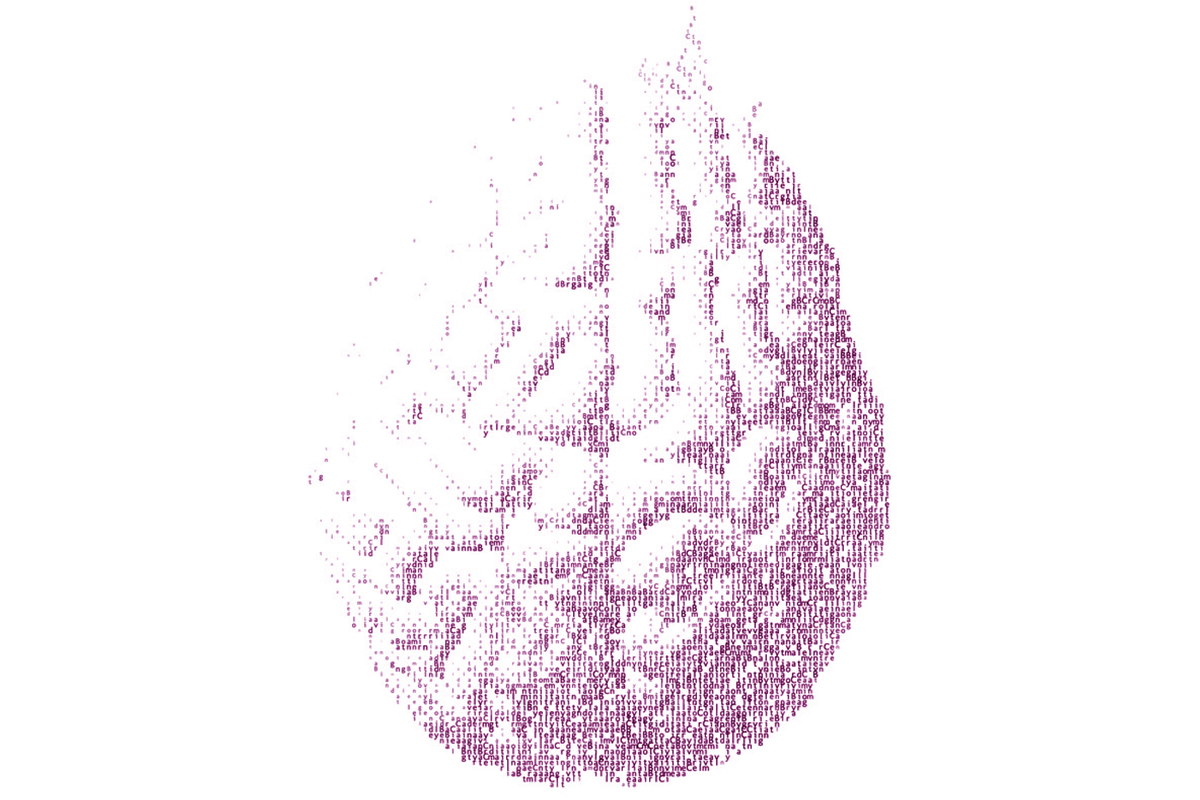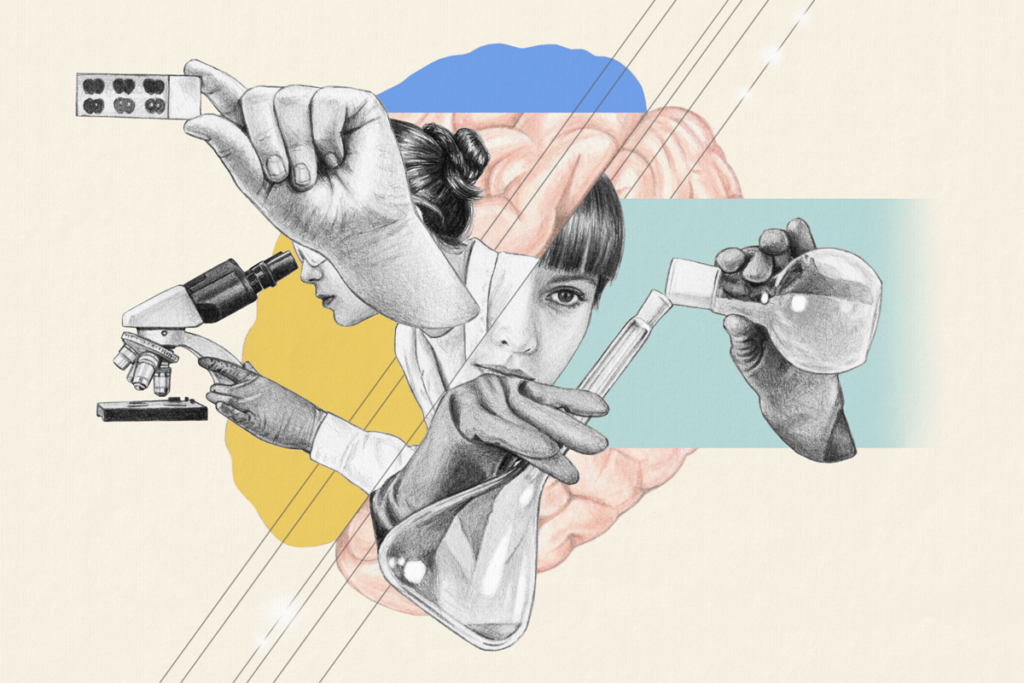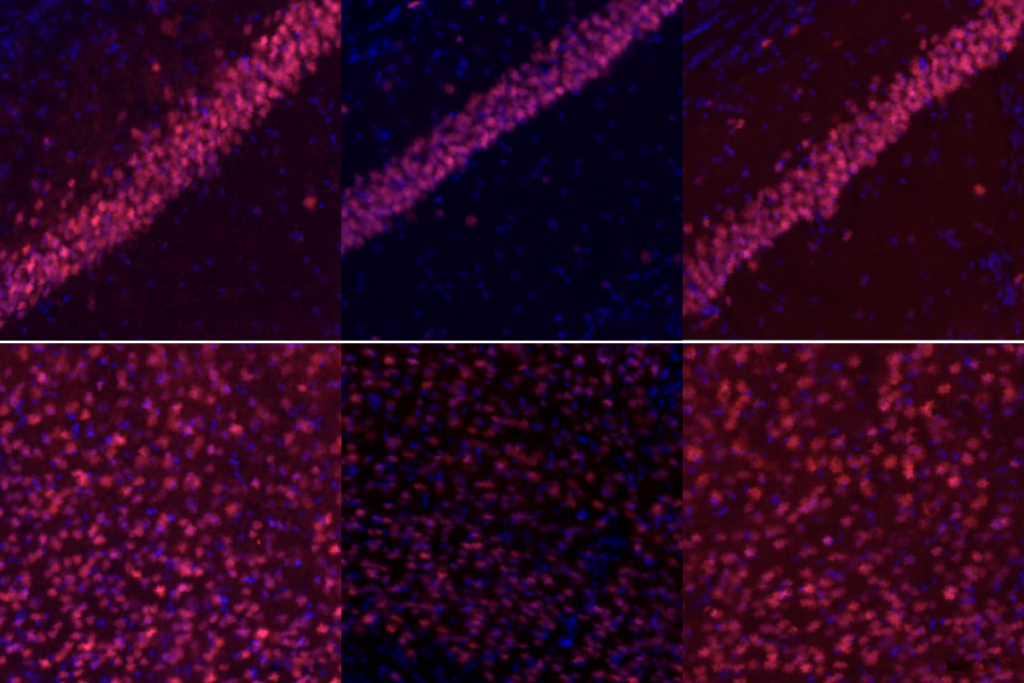Data on gender identity are missing from this year’s data release of the ongoing Adolescent Brain Cognitive Development (ABCD) Study, published at the end of June, The Transmitter has learned.
The U.S. National Institutes of Health removed these variables—which the study researchers have collected since each participant’s first-year follow-up—“to align with agency priorities,” a spokesperson from the National Institute on Drug Abuse, which co-founded and co-funds the study, told The Transmitter.
“Sex and gender are two different aspects of an individual, and ignoring one of those completely essentially adds blinders to us as scientists,” says Amy Kuceyeski, professor of mathematics in radiology at Weill Cornell Medicine. “I think the decision to not release gender information that was so carefully collected is unnecessarily restricting exploration of how neuroimaging correlates map to sex and gender together and separately.”
The ABCD Study launched in 2015 to track the brain and behavioral development of nearly 12,000 children, starting at ages 9 and 10, over the course of 10 years. Data are collected annually at 21 research sites across the United States and include MRI scans, neurocognitive assessments, physical health examinations and surveys with the participants and their parents.
A working group within the study that focused on gender identity and sexual health “has been sunset,” but sexual health data will still be available, according to the spokesperson from the National Institute on Drug Abuse. The spokesperson did not answer questions about what will happen to the data that have been collected since the previous release. Each release is cumulative and includes data from the previous years; researchers can continue to access archived releases until their data-use certification expires. It is unclear if gender data will be removed from those prior releases.
The removal from this year’s release follows President Trump’s January executive order that denies the legitimacy of transgender and gender non-conforming identities and required U.S. federal agencies to “remove all statements, policies, regulations, forms, communications, or other internal and external messages that promote or otherwise inculcate gender ideology.” The National Institutes of Health began reviewing other human data repositories for gender identity terms in March, The Transmitter previously reported.
This is “an arbitrary decision that’s not based on scientific evidence,” says Nicola Grissom, associate professor of psychology at the University of Minnesota. “Pieces of data that have been collected and that represent the important reality of children’s development have been removed, erased from the record” because they do not “happen to fit with a worldview that is not consistent with reality.”
T
he ABCD data on gender identity were collected via surveys. The study participants answered questions about how much they felt like a girl or a boy, how much they wished to be a girl and how much they acted like a girl while playing; parents answered questions about their child’s sex-typed behavior while playing and if the child spoke about having gender dysphoria, or feelings of distress that their gender identity does not match the sex they were assigned at birth.It’s important to collect gender identity and expression data because these factors are part of the reality of adolescent development and can influence young people’s mental health, Grissom says. Excluding those variables counteracts “the goals of the study—which is to try to understand adolescent brain development—by pretending that some aspects of adolescent brain development don’t exist.”
Leaders of the ABCD Study expressed the same sentiment a few years ago. It is “essential” to study “the complexity of gender in adolescent development,” members of the study’s gender identity and sexual health working group wrote in a 2022 paper. “Gender is important across adolescence and advancing understanding of individual differences in gender development will broaden our understanding of adolescent development.”
Elvisha Dhamala, assistant professor of psychiatry at the Feinstein Institutes for Medical Research, previously used the ABCD dataset to study sex and gender differences in the functional connectivity of the brain. Now that the gender data have been removed, her group is focusing on sex differences instead. Many of the reasons why it’s important to study gender differences in brain development are likely still unknown, Dhamala says, because they haven’t been studied much in the past. “Once those data are gone, we just won’t be able to look at [that question].”





